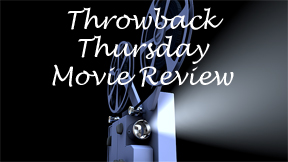I might have been in the first 1 percent of people to see “Office Space.” My buddy Jeremy and I had the theater to ourselves for an opening afternoon screening on Feb. 19, 1999, and the comedy went on to become a classic example of something that finds a large audience only after being a theatrical bomb. I recall laughing constantly throughout the film, even though empty theaters are generally not conducive to laughs.
Still pitch-perfect
I can watch it on my couch today and find it just as pitch-perfect as I did then. I’d say “Dumb and Dumber,” “Airplane!” and “The Naked Gun” are the only other comedies that bat 1.000 with their jokes. What’s more, I probably quote “Office Space” as much as “Seinfeld” and “The Simpsons,” and that’s especially impressive since we’re talking about a 90-minute movie compared to long-running TV series.
(“Why does it say paper jam when there is no paper jam?” “Yeah … I’m gonna need you to go ahead and come in on Sunday, too.” “You don’t need a million dollars to do nothing. My cousin’s broke, don’t do shit.”)

“Office Space” (1999)
Director: Mike Judge
Writer: Mike Judge
Stars: Ron Livingston, Jennifer Aniston, David Herman
While the screenplay by Mike Judge (known for “Beavis and Butt-head” and “King of the Hill” at the time) is a flawless dissection of workplace absurdities and injustices, Ron Livingston is the film’s secret weapon. Now a thoroughly accomplished actor, I still think of him as “’Office Space’s’ Ron Livingston.”
Peter’s slow-burn frustration with the traffic in the opening scene is palpable, and after he gets hypnotized, Livingston nails the balance of having Peter be lazily content while also dealing with the increasing stakes and stress from the botched embezzlement scheme.
Admittedly, I looked up “embezzlement” to make sure it’s the right word, just as Peter, Michael Bolton (David Herman) and Samir (Ajay Naidu) look up “money laundering” in the dictionary. It’s both absurd and exactly on point that the trio feels like gangsters – note the film’s hardcore rap soundtrack – but is also totally out of their depth.
Groundbreaking, but almost ready-made
Although “Office Space” is considered to be a groundbreaking film, paving the way for “The Office” and crystallizing the modern cubicle workplace like never before, every actor gets the point of their character.
There’s Gary Cole as Initech boss Bill Lumbergh, who conveys that he’s in this for his own career advancement, even though no line of dialog spells that out. Lumbergh is the consummate low-level-but-high-corporate-position slime, so much so that we can relate to Peter when he places sexual relations with the man as a worse moral offense than the theft of $300K. (“At least I never slept with Lumbergh.”)
Richard Riehle is delightful as Tom, who finds happiness after being hit by a drunk driver, getting seriously injured and landing a huge settlement. Peter and others look at Tom – in a full-body cast and a wheelchair – askance, but he’s also a metaphor for the notion that distress is the path to money and happiness, something these blue-collar programmers have subscribed to up until Peter’s epiphany-by-hypnotism and the Initech layoffs.

John C. McGinley and Paul Wilson, as the two Bobs, show us the behind-the-scenes of how layoffs are decided, complete with rude jokes about how Samir “Nah-ga … nah-ga … not gonna work here anymore.” Peter’s promotion is based entirely on how he (under hypnotic influence) plays the game of getting into the Bobs’ good graces, not on his work ability or basic competence.
Despite being totally relatable, “Office Space” is much more funny than it is harrowing – unlike Judge’s later cult hit “Idiocracy” (2006), which I find on point about the direction of society yet hard to watch. “Office Space” chronicles a downer of a subject – the notion that 40 hours of your week will be unpleasant – and somehow makes a viewer feel good. I think it might be because it doesn’t reach for the sky for a happy ending.
Choose your job wisely
It’s tempting to label “Office Space” as some sort of delicious workplace revenge comedy, and I suppose it is for mistreated mumbler Milton (Stephen Root), who burns down the Initech building and is literally sipping fruity drinks on the beach in the final scene. But Peter’s arc ends with him in a lower-paying job. Meanwhile, Michael and Samir are at Initrode (having moved to the rival after their Initech layoffs) and Joanne (Jennifer Aniston) works at the chain restaurant next door to Chotchkie’s that doesn’t require 15 pieces of flair.
Michael, Samir and Joanne find slightly more tolerable jobs, so the message there is that you shouldn’t accept mistreatment at your job after a certain point. (But it is convenient that they all quickly land new jobs, nearby, in the same fields. Although I suppose waitressing isn’t a field that would require leaving town for the next gig.)
In Peter’s case, the message is that you should choose a job you like over a job where you’ll make lots of money, something that resonated with me in 1999 but I’m less convinced of now. Still, Peter finds catharsis with fresh air and bucks (happiness with the simple things), something that seems within reach for anyone caught in a bad job.

